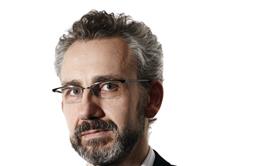“Heroic” is not a word often used to describe NHS managers, so well done to NHS chief executive Sir David Nicholson for praising the individual efforts of primary care trust and strategic health authority leaders.
HSJ has three heroes of its own this week. The first is the most unlikely.
Who do you think he had in mind when he told HSJ “I’m a public servant and I’m not one of those people who denigrate the contribution public servants have made”
Dr Laurence Buckman, the British Medical Association’s GPs committee chair, has written to his colleagues suggesting they should look for commissioning support from NHS managers.
Good for him too. Not because there should be an assumption that commissioning support should come from ex-PCT staff - appointments should be made on merit - but because the BMA has spent too long undermining the efforts of NHS management and it is good to see it recognise the expertise and experience within many PCTs.
But let us probe the BMA’s motives a little deeper. We should take Dr Buckman’s advice to BMA members at face value, but also understand how it is influenced by fear as well as opportunity.
GPs’ greatest fear is that the general population will realise they are not part of the NHS workforce - weakening their status and influence at a stroke. It is one of the drivers behind the BMA’s disingenuous NHS anti-privatisation campaign. With national newspapers running lead stories about private sector businesses ready to sweep in and exploit the government’s public sector reforms, GPs are understandably anxious not to be seen as quislings. Their mindset also echoes the cornershop owner’s fear of the supermarket.
This dynamic between GPs and PCT managers will have a significant impact on the transition to the brave new world of GP commissioning.
Our second hero is Ealing PCT chief executive Robert Creighton. His impassioned illustration of the challenge facing PCT managers will resonate with many HSJ readers. His views on the average GP’s awareness of the risks and responsibilities of commissioning are also spot on.
Our last hero is Sir David himself. He wins that accolade for two reasons. The first is for committing himself to managing the transition despite knowing that most expected him to walk off in a huff when asked to tear up much of the system he had spent the last four years building.
Sir David’s approach of “when in doubt, centralise” does not endear him to all - and HSJ has had plenty of run-ins with the NHS chief executive as a result in recent years. But the greatest danger to the government’s reforms are a failure to deliver the efficiency savings required - which would destabilise the service and provide the greatest disincentive for GPs to take up the commissioning yoke. The “national management system” that Sir David will create over the summer will cause many to quail. It is unlikely to be pretty, but it probably has the best chance of keeping the show on the road over the next 18 months.
The other reason that Sir David is a hero - this week at least - is his refusal to join in the PCT bashing which has been so popular recently.
“He had no choice”, some might say, “he has been in charge”. True, but Sir David’s defence of his colleagues is heartfelt. When he says of working in the NHS “I can’t imagine myself doing anything else”, there speaks a man who is committed to public service and believes in the good managers can do.
As such, he has a poor opinion of those who stick the boot in - which may create some interesting tensions as the transition period rolls on.
Who do you think he had in mind when he told HSJ “I’m a public servant and I’m not one of those people who denigrate the contribution public servants have made both to the NHS and to society at large”?
‘Heroic’ NHS managers get their due from friend and foe

“Heroic” is not a word often used to describe NHS managers, so well done to NHS chief executive Sir David Nicholson for praising the individual efforts of primary care trust and strategic health authority leaders.
 Currently
reading
Currently
reading
‘Heroic’ NHS managers get their due from friend and foe
- 2
- 3































14 Readers' comments